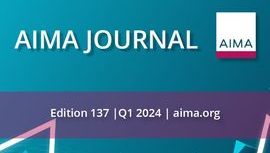Five things we learned from the ACC’s APAC day
Published: 15 March 2022
The Alternative Credit Council was delighted to convene private credit managers from across the APAC region. Our research continues to highlight the potential of the asset class in Asia, and it was great to hear first-hand how our members are turning that potential into a reality. For those who were unable to join us, here are my key takeaways from the session.
Asia might remain underpenetrated, but growth is persistent
Private credit might remain underweight relative to GDP compared to other regions, but there are strong tailwinds supporting the sector. The ongoing challenges to banks posed by covid and the macro environment are reducing their appetite to lend, which creates borrower demand for new finance solutions. On the LP side, yield compression elsewhere in the credit markets is also giving people additional incentives to look at Asian markets. The region’s biggest potential market, China, is also starting to grapple with key regulatory questions in relation to loan origination funds and supporting this sector as a key element of their capital markets. While the growth of private credit in Asia remains steady rather than spectacular, there is still a compelling business case for managers in the region.
Opportunities across the credit spectrum
The buyout market is Asia is starting to take shape but remains nascent. While this develops, most deal flow is likely to be more opportunistic in nature or centre on some forms of refinancing. In terms of the types of deals coming to market, the stress caused by covid is still working its way through the system with government debt moratoriums and bank forbearance still in play. The latency of these factors is also influencing the pricing of risk and deal structures.
Is character more important than collateral?
Downside protection remains at the heart of Asian private credit managers’ business models. The need for experience and technical knowledge of local creditor protection frameworks is well understood by most investors, particularly when investing in certain parts of the region. Panellists highlighted how aspects of this were more art than science, with borrowers’ motivations and incentives often a more important consideration. While everyone wants both, sometimes character can be more important than collateral.
ESG is now BAU
Investor focus on ESG continues to have ripple effects through the market with increased opportunities for private lenders, as banks and other lenders move away from assets which no longer meet their ESG expectations. At the same time, many of the transitional technologies and newer business models emerging in response to sustainability considerations play to the strengths of private credit managers who may have greater appetite for such assets than bank-led financing. While larger investors have more defined ESG expectations, smaller LPs and family offices are currently adopting a less prescriptive approach.
Technology and local talent becoming more prominent
Firms continue to look at technology as an important differentiator. Given the importance of human capital to deal sourcing, underwriting and execution, successful adoption of technology offers firms an important way to increase efficiency. Current areas of interest include the use of data analytics to inform risk analytics, as well as digitalisation of records to better monitor trade and commodity flows. Alongside this, almost all firms have plans in place to develop local talent, often straight out of college. As well as securing good levels of human capital, creating local jobs is also an increasingly important element of the sector’s relationship with local policymakers.
Thank you to all the speakers across the programme for being so generous with their time and insights, as well as to our sponsors Allen & Overy, Dechert, EY and Simmons & Simmons for their support. I’m always impressed with the depth of expertise in the region and this event was no exception.
Members in the region may already be aware of our efforts to broaden the unified funds tax emption in Hong Kong to support the growth of private credit in Asia. This is one component in our global efforts on behalf of the sector. I’d be delighted to speak with any members who are interested in learning more about our advocacy and how they can participate.









